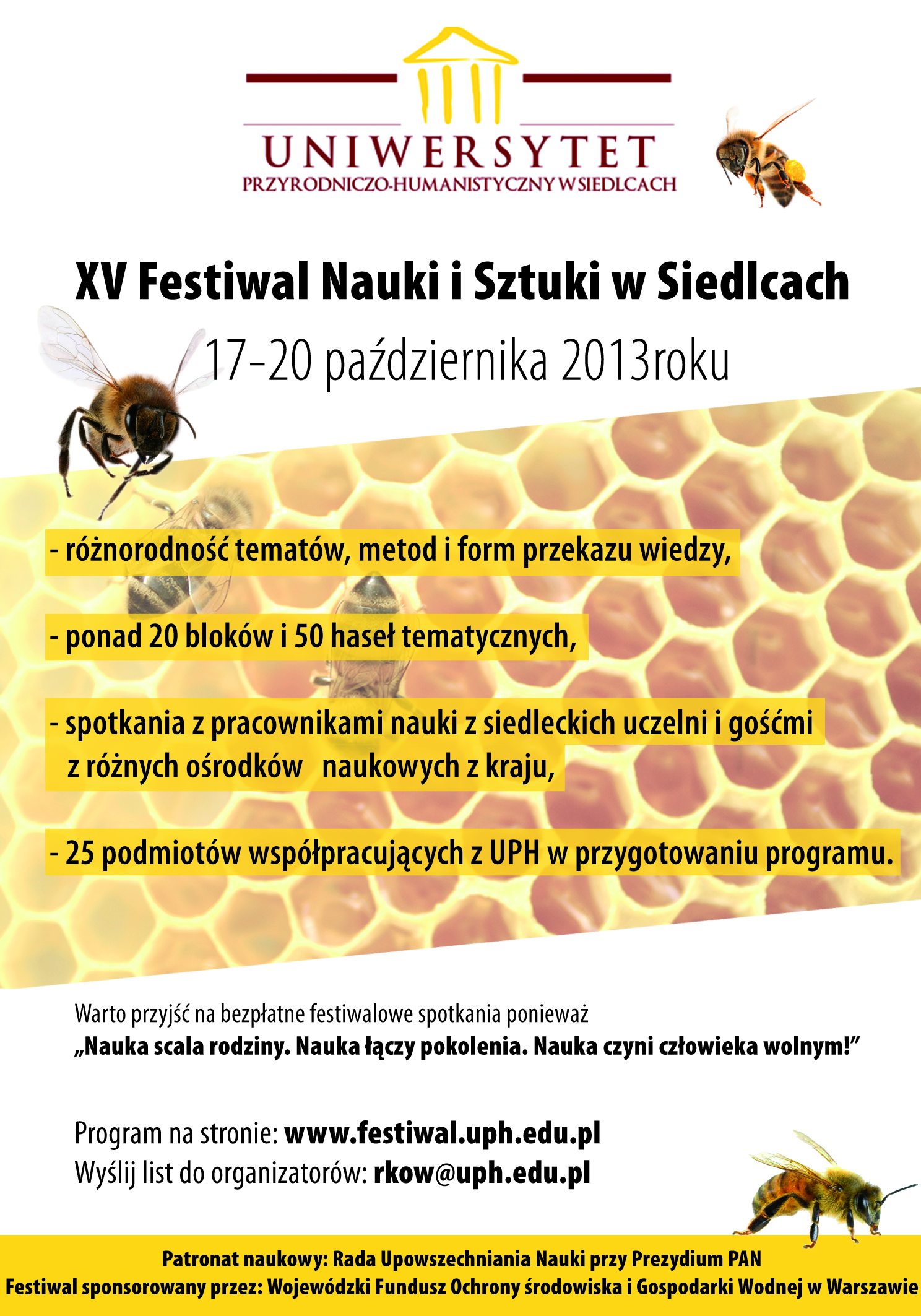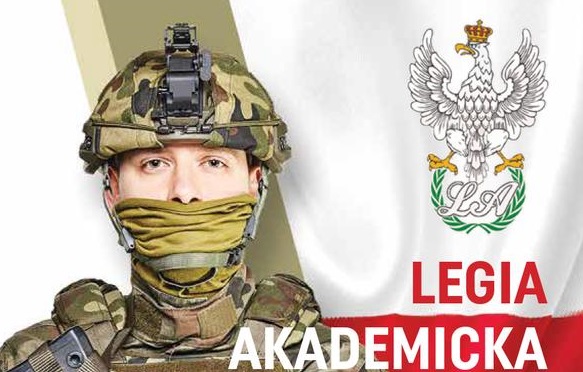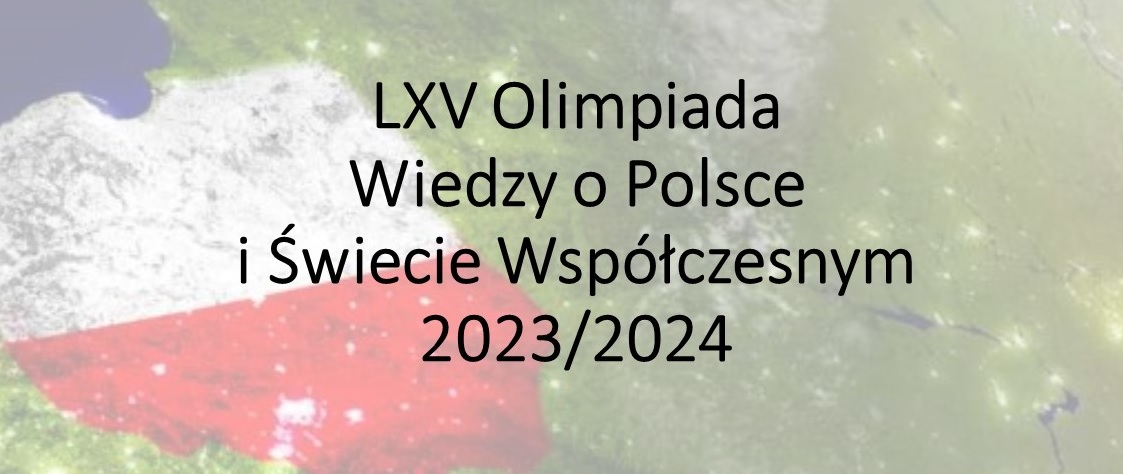- 3 years (granted bachelor’s degree)
- European Integration
- East- European studies
- Contemporary Diplomacy
Konsultacje pracowników
Instytutu Nauk o Bezpieczeństwie
semestr zimowy 2025/2026
Dyrektor Instytutu Nauk o Bezpieczeństwie [ Pokój 2.38 ]
| Imię i nazwisko, stanowisko | DZIEŃ | GODZINY |
|
dr hab. Krzysztof Drabik, prof. uczelni Ten adres pocztowy jest chroniony przed spamowaniem. Aby go zobaczyć, konieczne jest włączenie w przeglądarce obsługi JavaScript. |
WTOREK | 13.15-14.45 |
| Stacjonarnie pok. 2.38 | ||
Zastępca Dyrektora Instytutu Nauk o Bezpieczeństwie [ Pokój 2.39 ]
|
Imię i nazwisko, stanowisko |
DZIEŃ |
GODZINY |
|
dr Marlena Drygiel-Bielińska Ten adres pocztowy jest chroniony przed spamowaniem. Aby go zobaczyć, konieczne jest włączenie w przeglądarce obsługi JavaScript. |
ŚRODA |
10.0-11.30 |
|
Stacjonarnie pok. 2.39 |
||
- Pokój 2.34
|
Imię i nazwisko, stanowisko |
DZIEŃ |
GODZINY |
|||
|
dr hab. Norbert Malec, prof. uczelni Ten adres pocztowy jest chroniony przed spamowaniem. Aby go zobaczyć, konieczne jest włączenie w przeglądarce obsługi JavaScript. |
ŚRODA |
9:45-11:45 |
|||
|
Stacjonarnie pok. 2.34 |
|||||
|
dr Agnieszka Araucz-Boruc Ten adres pocztowy jest chroniony przed spamowaniem. Aby go zobaczyć, konieczne jest włączenie w przeglądarce obsługi JavaScript. |
PONIEDZIAŁEK ŚRODA |
10.00-11.30 |
|||
|
Stacjonarnie pok. 1.20 |
|||||
|
dr Joanna Kufel –Orłowska Ten adres pocztowy jest chroniony przed spamowaniem. Aby go zobaczyć, konieczne jest włączenie w przeglądarce obsługi JavaScript. |
PONIEDZIAŁEK WTOREK |
16.45 – 18.15 11.30-13.00 |
|||
|
Stacjonarnie pok.2.34 |
|||||
|
dr Jan Świerczewski Ten adres pocztowy jest chroniony przed spamowaniem. Aby go zobaczyć, konieczne jest włączenie w przeglądarce obsługi JavaScript. |
PONIEDZIAŁEK |
8.30-10.00 |
|||
|
Stacjonarnie pok. 2.34 |
|||||
|
dr Grzegorz Wierzbicki Ten adres pocztowy jest chroniony przed spamowaniem. Aby go zobaczyć, konieczne jest włączenie w przeglądarce obsługi JavaScript. |
WTOREK WTOREK |
8.30-10.00 term. B 11.30-13.00 term. A |
|||
|
Stacjonarnie pok. 2.34 |
|||||
|
dr Łukasz Świerczewski Ten adres pocztowy jest chroniony przed spamowaniem. Aby go zobaczyć, konieczne jest włączenie w przeglądarce obsługi JavaScript. |
PONIEDZIAŁEK | 9.00-10.30 online | |||
|
Link do konsultacji: https://meet.google.com/zwt-szrh-hhk?hs=122&authuser=0 |
|||||
|
mgr Marek Suwiński Ten adres pocztowy jest chroniony przed spamowaniem. Aby go zobaczyć, konieczne jest włączenie w przeglądarce obsługi JavaScript. |
WTOREK |
11.45-13.15 term. B |
|||
|
Stacjonarnie pok. 2.34 |
|||||
|
mgr Adriana Dróżdż Ten adres pocztowy jest chroniony przed spamowaniem. Aby go zobaczyć, konieczne jest włączenie w przeglądarce obsługi JavaScript. |
PONIEDZIAŁEK |
15.00-16.30 |
|||
|
Link do konsultacji: https://meet.google.com/bzt-ozvc-krb?hs=122&authuser=0 |
|||||
|
mgr Urszula Stańczuk-Bajek Ten adres pocztowy jest chroniony przed spamowaniem. Aby go zobaczyć, konieczne jest włączenie w przeglądarce obsługi JavaScript. |
CZWARTEK |
18.00-19.30 |
|||
|
Link do konsultacji: https://meet.google.com/cdn-ensz-rpm?hs=122&authuser=0 |
|||||
- Pokój 2.35
|
Imię i nazwisko, stanowisko |
DZIEŃ |
GODZINY |
|
prof. dr hab. Andrzej Glen Ten adres pocztowy jest chroniony przed spamowaniem. Aby go zobaczyć, konieczne jest włączenie w przeglądarce obsługi JavaScript. |
PONIEDZIAŁEK |
11.30-13.00 |
|
Stacjonarnie pok. 2.35 |
||
|
prof. dr hab. Stanisław Jarmoszko Ten adres pocztowy jest chroniony przed spamowaniem. Aby go zobaczyć, konieczne jest włączenie w przeglądarce obsługi JavaScript. |
WTOREK |
18.00 – 19.30 |
|
Link do konsultacji: https://meet.google.com/qww-ccpi-vum?hs=122&authuser=0 |
||
|
dr hab. Adam Bobryk, prof. uczelni Ten adres pocztowy jest chroniony przed spamowaniem. Aby go zobaczyć, konieczne jest włączenie w przeglądarce obsługi JavaScript. |
PONIEDZIAŁEK |
8.00-9.30 |
|
Link do konsultacji: https://meet.google.com/gef-fswd-tdt?hs=122&authuser=0 |
||
|
dr Daria Krzewniak Ten adres pocztowy jest chroniony przed spamowaniem. Aby go zobaczyć, konieczne jest włączenie w przeglądarce obsługi JavaScript. |
||
| PONIEDZIAŁEK | 13.30-15.00 | |
|
Stacjonarnie pok. 2.35 |
||
|
dr Kazimierz Pawelec Ten adres pocztowy jest chroniony przed spamowaniem. Aby go zobaczyć, konieczne jest włączenie w przeglądarce obsługi JavaScript. |
ŚRODA |
11.30-13.00 |
|
Stacjonarnie pok. 2.35 |
||
- Pokój 2.36
|
Imię i nazwisko, stanowisko |
DZIEŃ |
GODZINY |
|
prof. dr hab. Włodzimierz Fehler wlodzimierz. Ten adres pocztowy jest chroniony przed spamowaniem. Aby go zobaczyć, konieczne jest włączenie w przeglądarce obsługi JavaScript. |
PONIEDZIAŁEK |
8.00-9.30 |
|
Link do konsultacji: https://meet.google.com/vfz-kzys-cbb?hs=122&authuser=0 |
||
|
dr hab. Jacek Zieliński, prof. uczelni Ten adres pocztowy jest chroniony przed spamowaniem. Aby go zobaczyć, konieczne jest włączenie w przeglądarce obsługi JavaScript. |
CZWARTEK |
17.00-18.30 |
|
Link do konsultacji: https://meet.google.com/zmq-obdg-hge?hs=122&authuser=0 |
||
|
dr Andrzej Dana Ten adres pocztowy jest chroniony przed spamowaniem. Aby go zobaczyć, konieczne jest włączenie w przeglądarce obsługi JavaScript. |
WTOREK |
11.45 -13.15 term. A |
| CZWARTEK | 13.15 -14.45 term. B | |
|
Stacjonarnie pok. 2.36 |
||
|
dr Maryla Fałdowska Ten adres pocztowy jest chroniony przed spamowaniem. Aby go zobaczyć, konieczne jest włączenie w przeglądarce obsługi JavaScript. |
CZWARTEK | 13.15 – 14.45 |
|
Stacjonarnie pok. 2.36 |
||
|
dr Joanna Ważniewska Ten adres pocztowy jest chroniony przed spamowaniem. Aby go zobaczyć, konieczne jest włączenie w przeglądarce obsługi JavaScript. |
WTOREK |
13.30 – 15.00 |
|
Stacjonarnie pok. 5 DS. nr 4 |
||
- Pokój 2.37
|
Imię i nazwisko, stanowisko |
DZIEŃ |
GODZINY |
|
|
dr hab. Stanisław Topolewski, prof. uczelni Ten adres pocztowy jest chroniony przed spamowaniem. Aby go zobaczyć, konieczne jest włączenie w przeglądarce obsługi JavaScript. |
WTOREK | 12.00-13.30 | |
|
|
|||
|
dr hab. Jan Rajchel, prof. uczelni Ten adres pocztowy jest chroniony przed spamowaniem. Aby go zobaczyć, konieczne jest włączenie w przeglądarce obsługi JavaScript. |
ŚRODA |
12.00-13.30 |
|
|
Link do konsultacji: https://meet.google.com/brn-nysw-dnz?hs=122&authuser=0 |
|||
|
dr hab. Mariusz Kubiak, prof. uczelni Ten adres pocztowy jest chroniony przed spamowaniem. Aby go zobaczyć, konieczne jest włączenie w przeglądarce obsługi JavaScript. |
ŚRODA |
12.00-13.30 |
|
|
Stacjonarnie pok. 2.37 |
|||
|
dr hab. Cezary Kalita , prof. uczelni Ten adres pocztowy jest chroniony przed spamowaniem. Aby go zobaczyć, konieczne jest włączenie w przeglądarce obsługi JavaScript. |
ŚRODA |
15.00-16.30 |
|
|
Stacjonarnie pok. 2.37 |
|||
|
dr Karol Zygo Ten adres pocztowy jest chroniony przed spamowaniem. Aby go zobaczyć, konieczne jest włączenie w przeglądarce obsługi JavaScript. |
ŚRODA |
16.00-17.30 |
|
|
Link do konsultacji: https://meet.google.com/ihn-skuv-vbu?hs=122&authuser=0 |
|||
|
dr Grzegorz Stolarski Ten adres pocztowy jest chroniony przed spamowaniem. Aby go zobaczyć, konieczne jest włączenie w przeglądarce obsługi JavaScript. |
ŚRODA |
13.30-15.00 |
|
|
Stacjonarnie pok.2.37 |
|||
|
dr Michał Godlewski Ten adres pocztowy jest chroniony przed spamowaniem. Aby go zobaczyć, konieczne jest włączenie w przeglądarce obsługi JavaScript. |
CZWARTEK |
11.00-12.30 |
|
|
Stacjonarnie pok. 2.37 |
|||
|
mgr Mariusz Matacz Ten adres pocztowy jest chroniony przed spamowaniem. Aby go zobaczyć, konieczne jest włączenie w przeglądarce obsługi JavaScript. |
ŚRODA |
15.15-16.45 term. A |
|
| Stacjonarnie pok.2.35 | |||
| mgr Przemysław Ławrynowicz Ten adres pocztowy jest chroniony przed spamowaniem. Aby go zobaczyć, konieczne jest włączenie w przeglądarce obsługi JavaScript. |
ŚRODA | 10.00-11.30 term. B | |
| Stacjonarnie pok. 313 DS. nr 4 | |||
- Pokój 2.41
|
Imię i nazwisko, stanowisko |
DZIEŃ |
GODZINY |
|
|
prof. dr hab. Mirosław Minkina Ten adres pocztowy jest chroniony przed spamowaniem. Aby go zobaczyć, konieczne jest włączenie w przeglądarce obsługi JavaScript. |
PONIEDZIAŁEK |
10.15-11.45 |
|
|
Stacjonarnie pok. 2.41 |
|||
|
dr hab. Malina Kaszuba, prof. uczelni Ten adres pocztowy jest chroniony przed spamowaniem. Aby go zobaczyć, konieczne jest włączenie w przeglądarce obsługi JavaScript. |
PONIEDZIAŁEK |
10.00-11.30 | |
| Link do konsultacji: https://meet.google.com/wsy-hyzn-urs?hs=122&authuser=0 | |||
|
dr hab. inż. Robert Białoskórski, prof. uczelni Ten adres pocztowy jest chroniony przed spamowaniem. Aby go zobaczyć, konieczne jest włączenie w przeglądarce obsługi JavaScript. |
WTOREK |
12.00-13.30 |
|
|
Link do konsultacji: https://meet.google.com/adn-mfyb-rko?hs=122&authuser=0 |
|||
|
dr Beata Gałek Ten adres pocztowy jest chroniony przed spamowaniem. Aby go zobaczyć, konieczne jest włączenie w przeglądarce obsługi JavaScript. |
PONIEDZIAŁEK |
15.00-16.30 |
|
|
Stacjonarnie pok. 2.41 |
|||
|
dr Marta Sara Stempień Ten adres pocztowy jest chroniony przed spamowaniem. Aby go zobaczyć, konieczne jest włączenie w przeglądarce obsługi JavaScript. |
WTOREK |
13.15-14.45 |
|
|
Link do konsultacji: https://meet.google.com/kzv-gpos-fjg?hs=122&authuser=0 |
|||
|
dr Renata Tarasiuk Ten adres pocztowy jest chroniony przed spamowaniem. Aby go zobaczyć, konieczne jest włączenie w przeglądarce obsługi JavaScript. |
WTOREK |
13.15-14.45 |
|
|
Stacjonarnie pok. 2.41 |
|||
|
dr Damian Jarnicki Ten adres pocztowy jest chroniony przed spamowaniem. Aby go zobaczyć, konieczne jest włączenie w przeglądarce obsługi JavaScript. |
PONIEDZIAŁEK |
9.45 - 11.15 |
|
|
Link do konsultacji: https://meet.google.com/fiz-kvfj-uib?hs=122&authuser=0 |
|||
|
dr Magdalena Rudnicka Ten adres pocztowy jest chroniony przed spamowaniem. Aby go zobaczyć, konieczne jest włączenie w przeglądarce obsługi JavaScript. |
ŚRODA |
14.40-15.30 |
|
|
Link do konsultacji: https://meet.google.com/jkt-xrsq-duj?hs=122&authuser=0 |
|||
|
dr Robert Śnitko Ten adres pocztowy jest chroniony przed spamowaniem. Aby go zobaczyć, konieczne jest włączenie w przeglądarce obsługi JavaScript. |
PONIEDZIAŁEK |
16.00-17.00 |
|
|
Stacjonarnie pok. 2.41 |
|||
- Pokój 2.42
|
Imię i nazwisko, stanowisko |
DZIEŃ |
GODZINY |
|
|
prof. dr hab. Maciej Marszałek Ten adres pocztowy jest chroniony przed spamowaniem. Aby go zobaczyć, konieczne jest włączenie w przeglądarce obsługi JavaScript. |
ŚRODA |
13.15-14.45 |
|
|
Stacjonarnie pok. 2.42 |
|||
|
dr hab. Marcin Górnikiewicz |
ŚRODA |
16.00-17.30 |
|
|
Link do konsultacji: https://meet.google.com/jzm-deik-don?hs=122&authuser=0 |
|||
|
dr hab. Henryk Wyrębek, prof. uczelni Ten adres pocztowy jest chroniony przed spamowaniem. Aby go zobaczyć, konieczne jest włączenie w przeglądarce obsługi JavaScript. |
WTOREK |
10.00 -11.30 |
|
|
Stacjonarnie pok. 2.42 |
|||
|
dr hab. Paweł Szmitkowski, prof. uczelni Ten adres pocztowy jest chroniony przed spamowaniem. Aby go zobaczyć, konieczne jest włączenie w przeglądarce obsługi JavaScript. |
PONIEDZIAŁEK |
8.30-10.00 10.00-11.30 |
|
|
Stacjonarnie pok. 1.22B |
|||
|
dr Sławomir Mroczek |
ŚRODA |
15.30-17.00 |
|
|
Link do konsultacji: https://meet.google.com/dpc-dteh-tic?hs=122&authuser=0 |
|||
|
dr Robert Kawka Ten adres pocztowy jest chroniony przed spamowaniem. Aby go zobaczyć, konieczne jest włączenie w przeglądarce obsługi JavaScript. |
PONIEDZIAŁEK |
15.30-17.00 |
|
|
Link do konsultacji: https://meet.google.com/vqo-wkbb-tiz?hs=122&authuser=0 |
|||

W imieniu Dyrekcji Instytutu Nauk Społecznych i Bezpieczeństwa zapraszamy na wykłady naszych pracowników.
W dniu 18 października, od godz. 10.00 do 13.00 w auli 08B w budynku Wydziału Humanistycznego porzy ulicy Żytniej 39 w ramach festiwalu wykłady wygłoszą:
prof. nadzw dr hab. Mirosław MINKINA, Współczesne wyzwania dla służb specjalnych.
prof. nadzw. dr hab. Mariusz KUBIAK, Filozofia bezpieczeństwa wobec wyzwań współczesnego świata.
dr Paweł SZMITKOWSKI, Ochrona ludności cywilnej w świetle współczesnych zagrożeń.
Dzień Otwarty
Dnia 24 października bieżącego roku w godz. 10.00-15.00 w budynku Wydziału Humanistycznego przy ulicy Żytniej 39 odbyły się Dzień Otwarty - spotkanie z maturzystami. Prowadzone one były w formie gry akademickiej prowadzącej grupy młodzieży do kolejnych punktów - spotkań z kierunkami studiów.

















